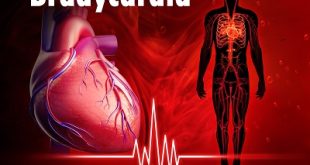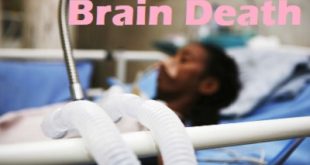Introduction
A birth defects are problems that occurs when a baby is developing in utero (in the womb). Birth defects are structural changes present at birth that can affect almost any part or parts of the body (e.g., heart, brain, foot). They may affect how the body looks, works, or both. Birth defects can vary from mild to severe.
The well-being of each child affected by a birth defect depends mostly on which organ or body part is involved and how much it is affected. Depending on the severity of the defect and what body part is affected, the expected lifespan of a person with a birth defect may or may not be affected.
Types of birth defects
A baby may be born with a birth defect caused by a problem in his or her chromosomes, metabolism, the formation of external body parts (such as limbs) or internal organs, or all three.
- Chromosomal Defects
Down Syndrome (Trisomy 21)
- Oral-Facial Clefts
Cleft Lip (with or without cleft palate)
Cleft Palate (without cleft lip)
- Neural Tube Defects
Anencephaly
Spina Bifida
- Reproductive System
Hypospadias
- Heart
Hypoplastic Left Heart Syndrome
Tetralogy of Fallot
Transposition of the Great Arteries (Vessels)
- Intestines
Gastroschisis
- Limbs
Upper Limb Deficiencies
Lower Limb Deficiencies
Causes of birth defects
The exact causes of certain birth defects are often unknown. Birth defects can be a result of:
- Genetics
- Lifestyle choices and behaviors
- Exposure to certain medications and chemicals
- Infections during pregnancy
- A combination of these factors
Risk factors
All pregnant women have some risk of delivering a child with a birth defect. Risk increases under any of the following conditions:
- A family history of birth defects or other genetic disorders
- Drug use, alcohol consumption, or smoking during pregnancy
- Maternal age of 35 years or older
- Inadequate prenatal care
- Untreated viral or bacterial infections, including sexually transmitted infections
- Use of certain high-risk medications, such as isotretinoin and lithium
Complications of birth defects
- An abnormal heart rate in the baby
- Labor that fails to progress
- Asphyxia, or lack of oxygen to the baby
- Excessive bleeding.
- Social dystocia which can cause nerve damage when the baby’s shoulder gets stuck in the birth canal and the neck stretches abnormally.
- Brachial plexus injuries and Erb’s palsy.
- Problems with the umbilical cord
- Premature labor, or abnormal positioning of the baby, like the breech position in which the baby’s feet are emerging from the womb first.
- Cerebral palsy affects muscles and movements and is not curable.
The symptoms of common birth defects
Congenital Heart Defects
- Persistently rapid heartbeat
- Difficulty in drawing breaths
- Poor feeding and breathlessness during feeds, consequently leading to poor weight gain
- Excessive sweating
- Tiredness
- Bluish or pale grey skin tone
Cleft Lip or Palate
- Feeding may be difficult as they cannot close around the nipple
- They are more vulnerable to ear infections
- As they grow, their teeth don’t develop normally
- If uncorrected, a cleft lip or palate may cause speech defects
Clubfoot
- The top of the foot is usually twisted downward and inward, increasing the arch and turning the heel inward.
- The foot may be turned so severely that it actually looks as if it’s upside down.
- The calf muscles in the affected leg are usually underdeveloped.
- The affected foot may be up to 1/2 inch (about 1 centimeter) shorter than the other foot.
Diagnosis and Test
i) First Trimester Screening
- Maternal Blood Screen: It measures the levels of two proteins, human chorionic gonadotropin (hCG) and pregnancy-associated plasma protein A (PAPP-A). If the protein levels are abnormally high or low, there could be a chromosomal disorder in the baby.
- Prenatal ultrasounds: An ultrasound creates pictures of the baby. The ultrasound for the first-trimester screen looks for extra fluid behind the baby’s neck. If there is increased fluid found on the ultrasound, there could be a chromosomal disorder or heart defect in the baby.
ii) Second Trimester Screening
- Amniocentesis: An amniocentesis is a test where the doctor collects a small amount of amniotic fluid from the area surrounding the baby. The fluid is then tested to measure the levels of baby’s protein such as alpha-fetoprotein (AFP) and acetylcholinesterase (AChE) which are produced in the unborn babies. These proteins may indicate the presence of birth defects.
- Chorionic Villus Sampling (CVS): CVS is a test where the doctor collects a tiny piece of the placenta, called chorionic villus, which is then tested to check for chromosomal or genetic disorders in the baby.
Treatment and medications
- Medications: Medications may be used to treat some birth defects or to lower the risk of complications from certain defects. In some cases, medication may be prescribed to the mother to help correct an abnormality before birth.
- Surgeries: Surgery can fix certain defects or ease harmful symptoms. Some people with physical birth defects, such as cleft lip, may undergo plastic surgery for either health or cosmetic benefits. Many babies with heart defects will need surgery, as well.
- Home care: Parents may be instructed to follow specific instructions for feeding, bathing, and monitoring an infant with a birth defect.
Prevention of birth defects
Many birth defects can’t be prevented, but a woman can do some things before and during pregnancy to help lower the chances of having a baby with a birth defect. Before pregnancy, women should follow:
- Make sure their vaccinations are up to date
- Make sure they don’t have any sexually transmitted diseases (STDs)
- Get the daily recommended dose of folic acid before trying to conceive
- Avoid unnecessary medicines and talk to their doctor about medicines they are taking
- If there’s a family history of birth defects or a woman is part of a high-risk group, she should consider meeting with a genetic counselor to determine her baby’s risk
During pregnancy, it’s important to take diet with rich vitamins and minerals. In addition, the following precautions should be followed:
- Don’t smoke and avoid second-hand smoke
- Don’t take alcohol
- Avoid all illicit drugs
- Get exercise and have plenty of rest
- Get prenatal care very early and regularly
 Diseases Treatments Dictionary This is complete solution to read all diseases treatments Which covers Prevention, Causes, Symptoms, Medical Terms, Drugs, Prescription, Natural Remedies with cures and Treatments. Most of the common diseases were listed in names, split with categories.
Diseases Treatments Dictionary This is complete solution to read all diseases treatments Which covers Prevention, Causes, Symptoms, Medical Terms, Drugs, Prescription, Natural Remedies with cures and Treatments. Most of the common diseases were listed in names, split with categories.







thanks, information is very important
And what might be the problem for a woman having miscarriages two to three in early stages?
please consult a doctor.
Thanks For information.
But we need more information about the treatment of the disease, eg:-
The Possible drug that is available to the disease in this disease if the mother take folic acid supplements in their first 28 Days the risk will reduced
sure we will work for your need. keep reading our app.
well explained
Where can I repair my baby cleft palate and how much does it cost.
please consult a doctor.
what are the precautions and drug to be taking for a woman with gestational diabetes.
Please read the post to get the answers to your questions.
thanks for the information!
how does genetic birth defects be treated ?
It can’t be cured but the effects can be reduced.
I have learned the lecture and i will implement it on any unfold emergency.
I like the lectures.
Drug for treatment of vaginal discharge in pregnant women
please consult a doctor.
please where can I get sufficient clinical information about intrauterine pregnancy of uncertain viability? Thanks
We will update new post on this topic, please stay tuned.
How can you aviod second hand smokes
The best thing you can do to protect your family from secondhand smoke is to quit smoking. Right away, you get rid of their exposure to secondhand smoke in your home and car, and reduce it anywhere else you go together. Make sure your house and car remain smokefree. Kids breathe in secondhand smoke at home more than any other place. The same goes for many adults. Don’t allow anyone to smoke in your home or car.
my daugther9 year is having groin pain and swelling up please any medication
Please consult a doctor.
how can you manage stroke and how much?
Please read it at http://diseasesdic.com/stroke-history-causes-symptoms-complications-treatments-rehabilitation-and-prevention/
Thanks for making available the important notes . Whenever I will be free I can read and know more . I just read Aging, but can you please add the name of medicine one or two which are easily available in market .So we can buy and improve our health. and take required precautions.
Sure we will work it out for adding the medicines in our post.
Hlw my son is suffering from this birth defects, he cannot breath properly (breathlessness) n it’s been 3 months now bt no changes, any 1 who can help plzz
Please consult a pulmonologist for the diagnosis of this defect.
I lost my baby i was told that she got extra chromosoms(47)/ Patau sydrome…i am afraid to be pregnant now becouse the Dr said it something genetic, What can i do?
please get genetic counseling before planning to conceive.